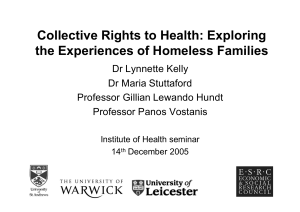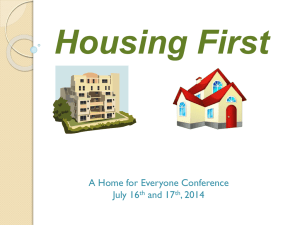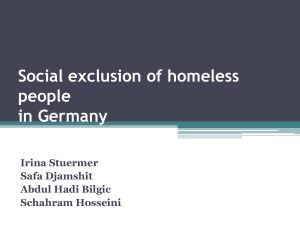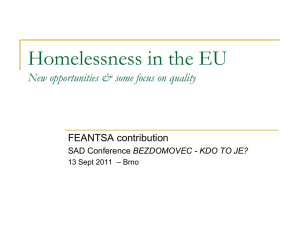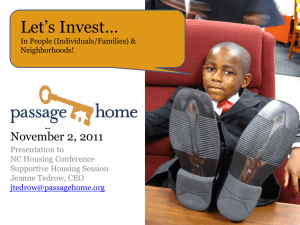The impact of social networks: moving on from homelessness
advertisement
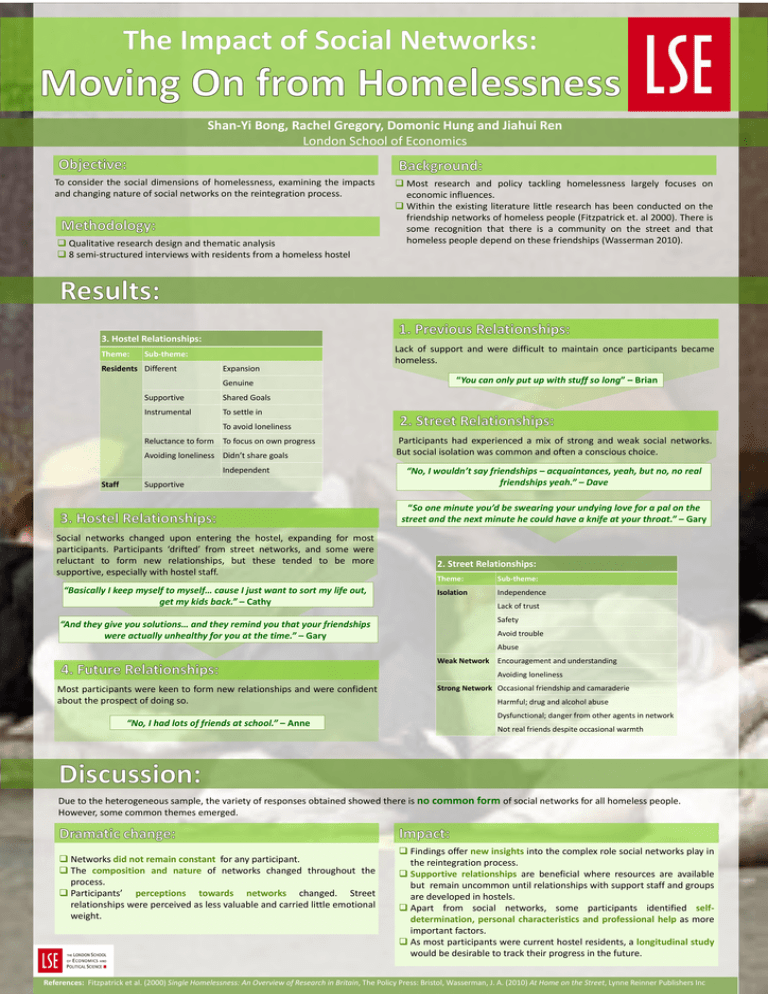
Shan-Yi Bong, Rachel Gregory, Domonic Hung and Jiahui Ren London School of Economics To consider the social dimensions of homelessness, examining the impacts and changing nature of social networks on the reintegration process. Qualitative research design and thematic analysis 8 semi-structured interviews with residents from a homeless hostel Most research and policy tackling homelessness largely focuses on economic influences. Within the existing literature little research has been conducted on the friendship networks of homeless people (Fitzpatrick et. al 2000). There is some recognition that there is a community on the street and that homeless people depend on these friendships (Wasserman 2010). 3. Hostel Relationships: Theme: Sub-theme: Residents Different Expansion Genuine Supportive Shared Goals Instrumental To settle in Lack of support and were difficult to maintain once participants became homeless. “You can only put up with stuff so long” – Brian To avoid loneliness Reluctance to form To focus on own progress Avoiding loneliness Didn’t share goals Independent Staff Supportive Participants had experienced a mix of strong and weak social networks. But social isolation was common and often a conscious choice. “No, I wouldn’t say friendships – acquaintances, yeah, but no, no real friendships yeah.” – Dave “So one minute you’d be swearing your undying love for a pal on the street and the next minute he could have a knife at your throat.” – Gary Social networks changed upon entering the hostel, expanding for most participants. Participants ‘drifted’ from street networks, and some were reluctant to form new relationships, but these tended to be more supportive, especially with hostel staff. “Basically I keep myself to myself… cause I just want to sort my life out, get my kids back.” – Cathy “And they give you solutions… and they remind you that your friendships were actually unhealthy for you at the time.” – Gary 2. Street Relationships: Theme: Sub-theme: Isolation Independence Lack of trust Safety Avoid trouble Abuse Weak Network Encouragement and understanding Avoiding loneliness Most participants were keen to form new relationships and were confident about the prospect of doing so. “No, I had lots of friends at school.” – Anne Strong Network Occasional friendship and camaraderie Harmful; drug and alcohol abuse Dysfunctional; danger from other agents in network Not real friends despite occasional warmth Due to the heterogeneous sample, the variety of responses obtained showed there is no common form of social networks for all homeless people. However, some common themes emerged. Networks did not remain constant for any participant. The composition and nature of networks changed throughout the process. Participants’ perceptions towards networks changed. Street relationships were perceived as less valuable and carried little emotional weight. Findings offer new insights into the complex role social networks play in the reintegration process. Supportive relationships are beneficial where resources are available but remain uncommon until relationships with support staff and groups are developed in hostels. Apart from social networks, some participants identified selfdetermination, personal characteristics and professional help as more important factors. As most participants were current hostel residents, a longitudinal study would be desirable to track their progress in the future. References: Fitzpatrick et al. (2000) Single Homelessness: An Overview of Research in Britain, The Policy Press: Bristol, Wasserman, J. A. (2010) At Home on the Street, Lynne Reinner Publishers Inc
